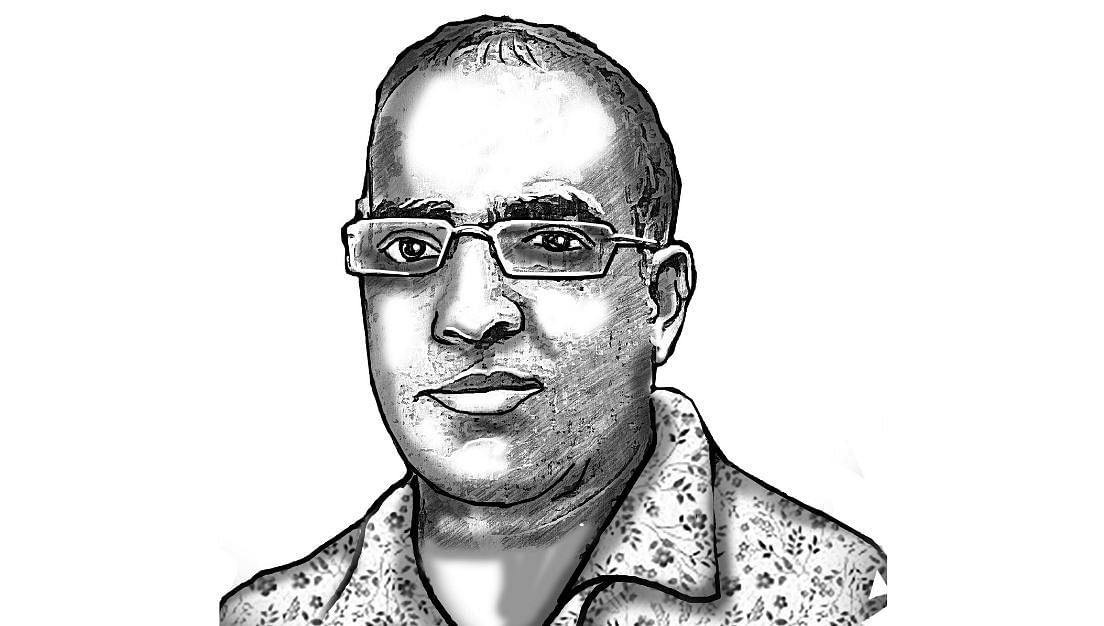
Ashwin Mahesh is a social technologist and entrepreneur, founder of Mapunity and co-founder, Lithium, wakes up with hope for the city and society, goes to bed with a sigh, repeats cycle
DH Illustration
Only a few months ago, Sheikh Hasina steamrolled her political opponents at the voting booth and outside to comfortably entrench herself as Prime Minister of Bangladesh for yet another term. The election wasn’t very different from so many that we have already seen wherever autocrats are in power. The Opposition boycotted the poll, concluding that it wasn’t worth engaging in an unfair contest. The international community, well-versed in the art of acquiescing with dictators, largely looked away.
Since returning to power 15 years ago, Hasina had crafted a kind of compact with the people -- she throttled the Opposition and even many of the people’s rights, but her government also delivered economic growth. This is, in fact, a common form of government around the world; by my count at least 40 countries practice some version of this.
The ending too is familiar. Many like Hasina have seen their delusional worlds collapse like a house of cards towards the end of their rule. In this case, what began as a protest against job quotas favouring the descendants of freedom fighters turned into a riotous demand that the Prime Minister should go. The government responded with increasing force, but with the Army refusing to fire on civilians, Hasina’s options rapidly dwindled. Agartala, snug against the Bangladeshi border, seemed more inviting than Dhaka.
What next for Bangladesh, its economy and its democracy? That remains to be seen. At this moment, however, the dramatic turn of events in Bangladesh presents an opportunity to see something that we otherwise don’t get to in democracies.
The protesters who chased Hasina from power proposed the name of Muhammed Yunus to head an interim government, and the full team includes members from civil society as well. Yunus is widely known as a pioneer of a revolution in microfinance and social business that lifted millions out of poverty and, more importantly, gave them a sense of autonomy about their financial futures. For his life’s work towards these goals, he was awarded the Nobel Peace Prize and is an inspiration to people not only in Bangladesh but elsewhere, too.
But autocrats are a different lot, and in their world, good deeds often merit punishment. Hasina persecuted him steadily, accusing him of fraud rather than celebrating his accomplishments. A whopping number of court cases were filed. He was forced to spend his time preparing his defences against these rather than continue his work.
Those who have now proposed his name probably see all this for what it is. Nor do the allegations against him seem to matter much to the Bangladeshi public; there is reasonably broad acceptance that he could do something good for the country. Perhaps their acceptance is because it is only an interim arrangement. Perhaps it’s more than that; some people said in interviews to the media that one can surely expect more from him -- and others like him in an interim government -- than they could ever hope to get from any of their political leaders.
That observation should draw our attention to the nature of electoral democracy itself. Around the world, the choices of the public in each country are mediated by political parties. The only leaders we can choose are from among those presented to us by the parties. In Bangladesh today, however, at a time when the people don’t face such a mediated choice, they seem happier to pick those who are not very political, and those who are well regarded for ideas and work that benefit the people.
If people in other countries had such a choice, they might choose similarly. Significant percentages of people in every free nation believe that none of their leaders is worthy of public office. But getting the leaders they actually want is wishful. Many who might be worthy prefer to keep their distance from politics, especially elections. Even if they did step forward, parties would probably not accommodate them. For now, they seem happier with quacks and despots.
Bangladesh’s new government of popular public servants is an aberration, no doubt, thrown up only by turmoil. Still, it has given us a fleeting chance to be reminded that democracy is an evolving project. It is worth asking -- if the people could choose their leaders freely without the baggage of parties and if they could simply freely vote for whichever citizen of the country, state, city or village they would like to see at the helm, would they choose differently? Could democracy be a pure choice of the voters, and not merely a competition among vote-seekers?
There is an old saying about elections, that it is not how we vote that counts but how the votes are counted. Perhaps one could say something like that about candidates, too -- that whom the parties choose to put forward as their candidates has come to matter a lot more than whom the people want to represent them. Bangladesh may have a small chance, for a little while at least, to bridge that gap.